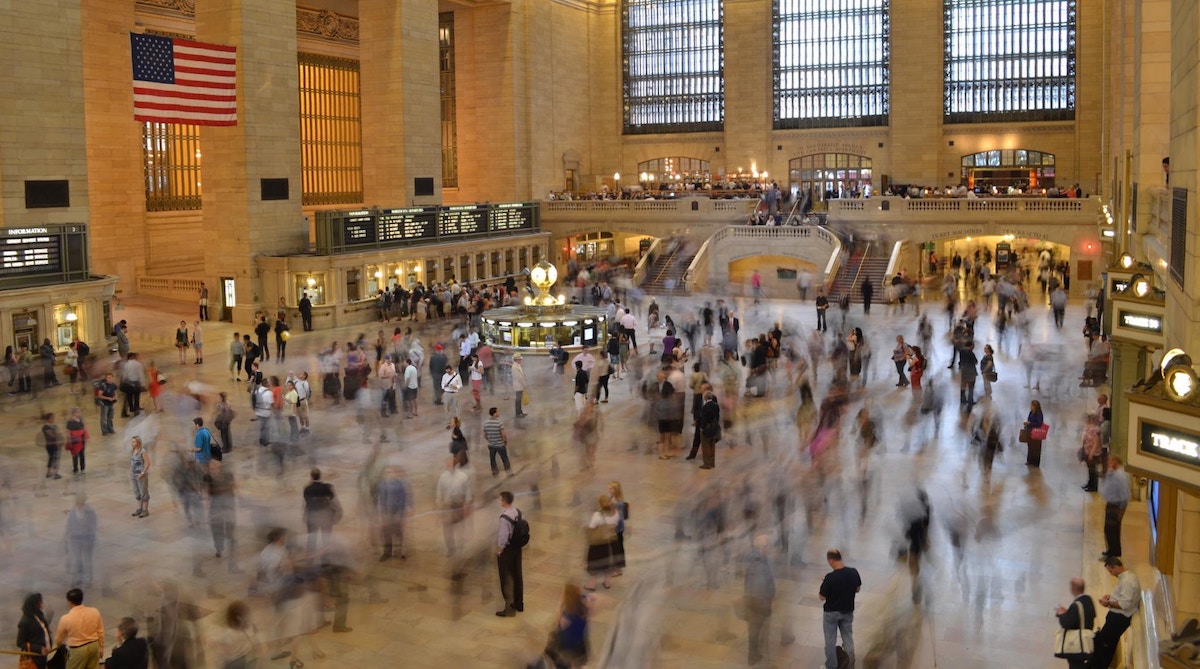Our children are breathing toxic air. I’m not talking about air from pollution. I am talking about cultural oxygen.
Peggy Noonan, one of the most thoughtful public intellectuals in our society today, makes precisely this point when she notes that “…a nation has an atmosphere. It has air it breathes in each day. China has a famous pollution problem: You can see the dirt in the air. America’s air looks clean but there are toxins in it, and they’re making the least defended and protected of us sick.” And the “least defended” she references are children.
Noonan wasn’t writing about air pollution or global warming. She was writing about the cultural oxygen that our children breathe; that which fills their minds and souls. She asserts that we have been swept by the obvious social, technological and cultural waves of the last forty years and, though she doesn’t say it, many of those waves have been good for our society. But her essay’s focus is on what she believes to be the destructive waves or, to keep our metaphor consistent, the toxic air children are breathing. She asserts: [t]he family blew up—divorce, unwed childbearing. Fatherless sons. Fatherless daughters, too. Poor [and wealthy] children with no one to love them. The internet flourished. Porn proliferated. Drugs, legal and illegal. Violent video games, in which nameless people are eliminated and spattered all over the screen. The abortion regime settled in, with its fierce, endless yet somehow casual talk about the right to end a life. An increasingly violent entertainment culture—low, hyper-sexualized, full of anomie and weirdness, allergic to meaning and depth. The old longing for integration gave way to a culture of accusation—you are a supremacist, misogynist, you are guilty of privilege and defined by your color and class, we don’t let your sort speak here.”
And her words—particularly those alluding to abortion and guns—will anger both the far left and the far right. The tragic irony operating behind the scenes is that the one remaining intersection of common ground shared by the ideological left and right—the anger flashpoint—is the “slippery slope” argument when it comes to by now casual talk about legal weapons of death. You’ve heard it: “If late-term abortions are outlawed, we’ll lose our right to choose” or “If our right to purchase bump stocks for semiautomatics is outlawed, we’ll lose our right to own firearms.” The cultural oxygen our children breathe has protected our right to choose, while it has also dulled our society’s sense of life and humanity and, over time, clouded our capacity to make clear judgments. And while we shout and debate and protest, our children continue to breathe dirty air.
We will argue the merits of what constitutes an unhealthy metaphorical toxin, and that’s reasonable and expected in a free society, but it’s pretty difficult to challenge Noonan’s broader point. Just as they need nutritious food and exercise for their bodies to develop, children need healthy cultural oxygen for their characters to develop; clean air that, especially in our cultural diversity, is understood to be necessary for each child to grow into a healthy, balanced, well-adjusted and complete human being.
Andrew Sullivan, in his NY Magazine article, The Poison We Pick, makes a similar assertion but in the context of the opioid epidemic. He states:
“Opioids are just one of the ways Americans are trying to cope with an inhuman new world where everything is flat, where communication is virtual, and where those core elements of human happiness — faith, family, community — seem to elude so many. Until we resolve these deeper social, cultural, and psychological problems, until we discover a new meaning or reimagine our old religion or reinvent our way of life, the poppy will flourish.”
I spend the majority of my life among 18-24 year-olds, three generations of whom have come of age in this epoch under scrutiny, and it may well be the heathy-formed leaders among them that will have the very challenging dilemma of navigating our complex culture while cleaning the air their children will breathe. Emerging leaders need our support. They need our help in identifying and nurturing healthy air filters; cultural institutions that produce clean oxygen. Here is my abbreviated list of “clean oxygen” producers:
Faith Communities that care for the poor, nurture the sick, and share in the formation of children; countercultural places of worship, accountability and hospitality that endeavor to “…seek the welfare of the city, wherever it may be.” Strong faith communities with after school programs, food and clothing pantries, counseling and mentoring programs form healthy characters;
Colleges and Universities and other non-tax funded educational organizations that use their independent status, sometimes as faith-based organizations, to be an alternative culture of life-giving practice including mutual respect of all persons, creation of codes of conduct for the use of social media, personal and interpersonal interactions and relationships, remediation that utilizes, as the best first step, disciplines of restorative justice, and policies and procedures that emanate from their Mission, and are clear in their guidance and expectations;
Public Schools that are protected, and resourced with actively engaged, well-supported and credentialed mental health professionals that, in partnership with educators and parents/guardians, identify early patterns of brain health trauma and provide treatment and care before that condition metastasizes into more aggressive brain health conditions;
Social Agencies or Organizations such as Girls/Boys Clubs, Big Brothers/Big Sisters or Mentor Dubuque whose purpose is to provide structure, accountability, care and nurture to children and adolescents, or father/mother figures to children who will surely benefit from such care and nurture. Children need parents in order to grow and develop, and they also absorb healthy ways of relating to the other by observing adults committed to love, honesty and faithfulness. When that is absent, other important entities need to fill those voids;
Civic and Cultural Leaders who first see themselves as servants of the public good in contrast to agents of a political ideology. America’s social contract with her citizens is premised on service. Our Founders never envisioned a career in politics; rather, they envisioned people who dared to remove themselves from their way of life in order to serve, for a time, for the benefit of others;
Neighbors who offer to help care for the sick child in the apartment down the hall or mow the lawn of the person next door who had their hip replaced. In other words, collections of people who live in relative proximity, and who care enough to care; and
Adults who commit and hold promises to each other in marriage and relationship, who care for and nurture each other, and who understand that bearing and raising children is both a special privilege and an enormous responsibility that, in my faith tradition, is bestowed by God. Part of that responsibility is to develop an environment that enlightens in matters of right vs. wrong, good vs. bad, and appropriate and healthy ways to be in the world and contribute to that larger world.
Nikolas Cruz killed seventeen human beings in Parkland, Florida, and destroyed many lives because of his evil act. He is someone’s child. He was born and raised in our country. A cursory examination of his life reveals the tragedy in its formation and the toxicity of the oxygen that he breathed.
Regularly, at any given moment, adolescents participate in and witness social media exchanges that are often full of racism, violence, bigotry, misogyny, homophobia, islamophobia and bullying exchanges. Many of our higher profile leaders regularly lie with impunity. All of these words create worlds; they create a culture that is filled with coarse and corrosive toxic particles. Many of our cultural leaders have cheapened and weaponized words and, thus, spoken a generation into decline. Cultures form character in young people, and children that live in a culture imbued with deception, death, instability and bigotry, over time, can struggle to develop a countenance of decency and humanity. Their soul can become numb, and the ability to discern rightness from wrongness can gradually weaken. Children eventually become adults; spouses, neighbors, parents, teachers, and leaders, and a tragic few of them even become Nikolas Cruz.
Over the last 40 years, the free society in which we live has become more death-numbing than life-giving. The many institutions and societal organizations that supported and produced clean air for our children to breathe are now a minority. They continue to exist, but they no longer have the capacity to produce the amount of oxygen we need to form healthy, whole and complete human beings on the scale our country needs.
Until such a time that our elected officials at the highest level of government understand that their first duty is to be a servant of the public and its trust and not an agent of a political ideology, it will be incumbent on School Boards, Community Leaders, Organizations, Neighborhoods, and City Councils to purify the air our children breathe—together.
And while we’re doing the difficult work of generating healthy cultural oxygen, we need to address the very unsettling thought at the back of every parent’s mind, and the mind of every student, teacher, staff person and administrator; that is, the safety of the school. Every airport in America, and nearly every county courthouse is modestly protected by metal detectors and an initial line of specialized and well-trained police officers sworn to protect citizens and enforce the law. Our children aren’t protected. And that needs to change. And we, as taxpayers, will need to pay for it.










Let’s work toward re-ordering this nation’s priorities. Let’s discard our paranoid fear of perceived enemies which serves to fuel the military/industrial complex while draining precious resources. Let’s work to forge a healthy environment that nurtures and protects the lives of those who will follow us.
Would that we all seek and act on opportunities to project personal agency as “servants of the public good.” Nice writing, Jeff.
David
Thank you for your kind comments and for reading the blog in the first place!! Sorry I am so late getting back to you. I like to try to respond–and least to first-time comments.
Jeffrey
This blog goes right along with my dissertation “Theological Hospitology: The Study of God’s Calling of Hospitality in the Local Church”. For example, this comparing the New Testament church and today:
“Whether for selfish reasons of protection or getting the latest news from foreign lands, or out of the selfless act of giving food and shelter to a needy stranger, hospitality was foundational in the heart and soul of these first century residents. In his letter to the Romans, Paul did not have to explain what he meant by hospitality, he just reminded them (and us) to practice it. However today, the idea of hospitality seems almost anti-cultural.
Case in point: My wife and I just purchased our first home. It was built in 1904, and one of the best features of this home is the big front porch. When the house was built, people would sit out on that front porch and speak to all the neighbors. Modern homes do not have a front porch. They have back decks. The world has become less neighborly in their construction.”
John,
Sorry I am so late getting back to you. I resonate with your “front porch” comment. I, too, believe that there is a correlation between front porches/neighbors and the move to a backyard deck….
I appreciate your taking the time to comment and for reading the blog.
Jeffrey